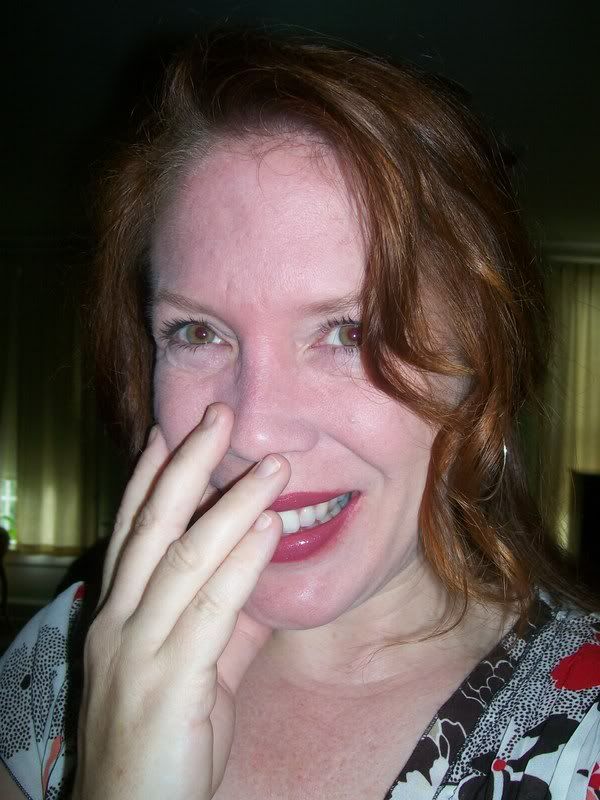
As an English teacher, I often wonder where did we grammar teachers go wrong? One would think that studying our native language would be interesting (especially now with its encroachment taking place by another language), but it's taken for granted. It's a lot for our lips, teeth, and tongue to maneuver just right to get those sounds out. How much easier it is to say jus instead of pronouncing that final "T"! And where did the sound for "D" start replacing the "TH"? We Americans are lazy speakers, and if someone does try to speak properly, then that person is accused as being "uppity." And don't get me wrong; I love a good accent, but we can have our regional dialects and still speak well.
When I was younger, my mother used to correct me when I said, I ain't got no... or I don't have no... She would say my double negatives turned into a positive.
I later learned that's really only true in algebra.
I myself never paid that much attention to certain grammar rules until I returned to college to become an English teacher. I loved my grammar professor. One day, she talked about the double-negative scenario. Let's face it, she said, if I said I ain't got no money, do you really think I have money in my pockets? Of course not! Standard English may be the correct way in speaking and writing, but there is a variety of ways to communicate. Finally feeling vindicated, we all cheered in the class. But, she continued, you, as teachers, must teach standard English so your students know the difference. They have to know when it's okay to use slang and when it's not okay, and when it's not okay, they have to know what to use instead. Fair enough. Now let's see about making my students understand. It wasn't until I started teaching grammar that I became more aware of it, both during my lessons and in everyday conversations with people other than my students. I guess the studies that state that a person learns better once he has to teach it is correct. It certainly worked with me.
Here are a few of my pet peeves as a teacher:
Where's it at?
I don't know; probably behind the "T." After sighs and eye-rolling the students correct themselves and say Where is it?
Me and so-and-so went...
"Me" didnt' do anything. They change "me" to "I" after more sighs and eye-rolling.
I seen that.
No, you haven't seen anything.
I think I did good on that test.
No one does "good." (This one's been said so many times, the entire class chimes in) I think I did WELL!
My correctioons are sinking in. Last Monday a student, who had been to Athens for the state competition, came in excited to tell me something that had happened to her -
Mrs. Chapman, I have English on the brain! A reporter from a local T.V. station came up and was interviewing us. (She gave some details, but this is the part I particularily like-) Then he turned to me and asked me if I thought any of us had done good. I told him, 'We don't do good; we do well!'" Then another boy said, Can you believe it, Mrs. Chapman? Correcting the guy on T.V.! I wanted to know how he, being corrected, took it. He laughed! they both exclaimed!
What a great feeling! Moments like that make it all worthwhile, eye-rollings and sighs included!

1 comment:
Yes, I love grammar rules, although I am not as good as I should be. (see?)
Glad you got to see some hard work pay off!!
Post a Comment